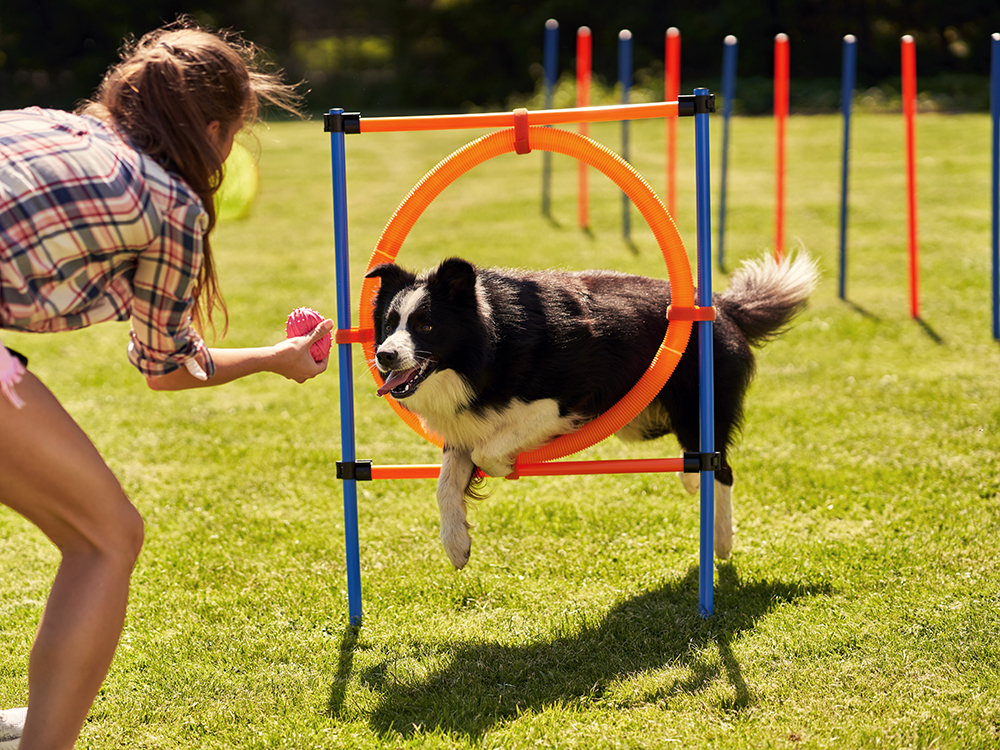Why Consistent Dog Training Is Key to a Happy Pet
Why Consistent Dog Training Is Key to a Happy Pet
Blog Article
The Ultimate Guide to Pet Training: Transform Your Family pet's Actions
Efficient pet dog training is essential for promoting an unified partnership between animals and their owners. This overview not just intends to furnish you with the needed devices to change your pet's actions yet additionally invites you to check out how these foundational concepts can lead to a deeper connection with your family pet.
Recognizing Canine Behavior
Understanding dog habits is vital for reliable training and an unified relationship in between canines and their proprietors. A canine's actions is influenced by a mix of genetics, setting, and experiences. Dog training. Acknowledging these factors enables proprietors to tailor their training approaches to meet the specific needs of their family pets
Dogs interact mainly through body language, articulations, and faces. A wagging tail can indicate excitement or happiness, while a put tail may signify fear or submission. Observing these hints enables owners to react suitably, reinforcing positive behaviors and resolving negative ones efficiently.
In addition, understanding the social framework of pets can give understandings right into their actions. Pets are pack pets, and they flourish in a structured atmosphere. Establishing constant rules and clear boundaries can protect against complication and promote a feeling of safety and security.
Furthermore, recognizing the all-natural instincts of dogs, such as the urge to dig or go after, is vital. These impulses can be rerouted through appropriate electrical outlets, such as play or exercise. By adequately recognizing these behavior aspects, proprietors can foster a favorable training experience, inevitably bring about a well-adjusted and obedient canine companion.
Crucial Educating Strategies
Effective pet training relies on a selection of necessary methods that can significantly improve the understanding process for both the owner and the pet dog. One basic technique is favorable support, which entails gratifying preferable actions with treats, appreciation, or play. This approach motivates canines to duplicate the habits that result in favorable end results, promoting a relying on partnership between the pet and owner.
An additional trick technique is consistency in commands and assumptions. Utilizing the exact same spoken signs and hand signals helps the pet dog recognize what is called for, reducing complication and advertising quicker discovering. Furthermore, developing clear limits and guidelines is critical for effective communication.
Socializing is also a crucial part of training. Revealing dogs to various environments, people, and other animals aids them create appropriate social skills and lowers anxiousness in unknown scenarios.
Last but not least, perseverance and timing are crucial. Training sessions need to be brief but constant, ensuring that the dog continues to be involved and receptive. By using these important techniques, proprietors can produce a structured and positive training experience that advertises etiquette and enhances the bond with their canine buddies.
Creating an Educating Arrange
How can a well-structured training schedule improve a canine's learning experience? A training timetable offers uniformity, making sure that dogs obtain regular, concentrated guideline. This predictability aids canines recognize what is expected of them, enhancing their understanding and permitting for better retention of behaviors and commands.
When developing a training timetable, it is vital to consider the pet's age, breed, and private character. Young young puppies might benefit from much shorter, much more frequent sessions, while adult pets may love longer, less frequent training durations. Including a variety of activities can also maintain the sessions involving, stopping monotony and promoting enthusiasm for understanding.
Additionally, organizing training sessions at specific times of the day can assist strengthen a routine. Combining training with discover this everyday walks or Dog training playtime can produce a favorable organization with understanding. It is likewise essential to include time for reinforcement, such as treats or praise, to compensate desired behaviors quickly.
Last but not least, versatility is vital. While consistency is important, being adaptable to the dog's mood or power degree can boost their understanding experience. A well-crafted training timetable inevitably lays the structure for efficient communication and a stronger bond between the dog and owner.
Common Educating Obstacles
Regardless of having a well-structured training routine, canine owners frequently come across different challenges during the training process. One common concern is incongruity in cues and commands. When multiple relative use various terms or tones, a dog may come to be baffled, hindering its capacity to find out properly.
One more frequent obstacle is diversion. Dog training. Pet dogs are normally curious animals, and external stimulations such as other pets, noises, or individuals can divert their interest throughout training sessions. This needs owners to create a controlled environment or slowly present distractions to enhance focus
In addition, varying power degrees can impact training results. High-energy dogs might struggle to settle and focus, while more laid-back types might require extra inspiration to engage. Customizing the training these details strategy to fit the private dog's personality is necessary for success.

Building a Solid Bond
A solid bond between a dog and its owner is important for successful training and total wellness. Dog training. This relationship cultivates trust, which is crucial for reliable interaction during the training procedure. When a pet really feels protected and linked to its proprietor, it is extra most likely to respond favorably to commands and cues
To construct this bond, uniformity is key. Developing a routine that includes normal feeding, workout, and training sessions assists develop a sense of security. Additionally, favorable support techniques, such as treats, appreciation, and play, reinforce wanted actions while enhancing the psychological connection.
Socialization is an additional crucial facet of bond-building. Subjecting your pet to different atmospheres, people, and various other animals assists them really feel more comfortable and certain, improving the bond with their proprietor. Taking part in tasks together, such as walking, playing bring, or joining obedience training, promotes team effort and shared satisfaction.
Conclusion

Understanding pet behavior is necessary for efficient training and a harmonious connection between canines and their owners.Efficient canine training relies on a variety of essential methods that can substantially improve the understanding process for both the canine and the owner.Despite having a well-structured training routine, pet owners usually encounter various difficulties during the training process.In verdict, effective canine training depends on a thorough understanding of canine actions, the application of vital strategies, and the establishment of a structured training routine. By highlighting positive reinforcement and uniformity, pet proprietors can significantly enhance their pets' habits, eventually making certain an unified relationship and promoting the health of both the dog and its environment.
Report this page